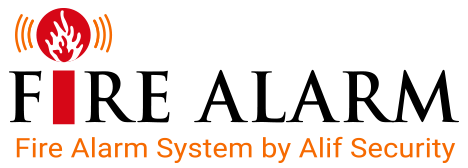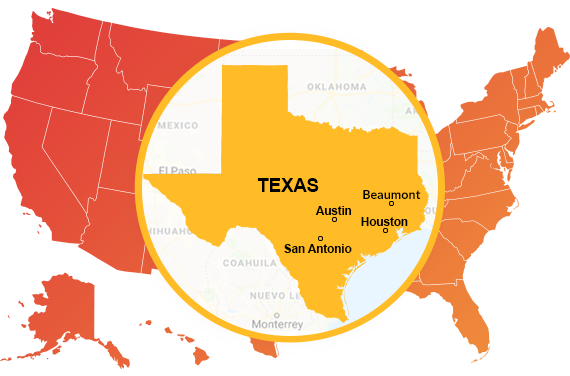Who Can Install Fire Alarm Systems? A Guide to Ensuring Safety

Alarms save lives, but ensuring your fire alarm system is installed correctly is key. This guide cuts through the confusion, explaining who can legally and safely install fire alarms in your area, along with the qualifications to look for, for maximum fire protection in your home or business.
Who Can Install Fire Alarm Systems?
Fire alarm system installation is a complex task that demands both technical expertise and practical experience. While some property owners may consider installing fire alarms themselves to save money, it is highly recommended to hire professional fire alarm system installers. Qualified experts have the necessary knowledge to assess your property's specific needs and install a system that meets the highest safety standards. However, you may wonder, who can install fire alarm systems? We will explore the key players who are qualified to carry out this vital task.
- Licensed Fire Alarm Technicians:
These are individuals specifically trained and certified in the installation and maintenance of fire alarm systems. They possess in-depth knowledge of various types of fire alarm systems and are familiar with local fire codes and regulations.
- Electrical Contractors:
Professional electrical contractors, especially those with specific training and certification in fire alarm systems, can install these systems. They understand electrical systems broadly, and many have specialized knowledge of fire alarm components and installation requirements.
- Specialized Fire Alarm Companies:
There are companies that specialize exclusively in fire alarm and life safety systems. These companies employ technicians who are trained and often certified specifically in fire alarm system installation and maintenance.
- Certified Fire Protection Engineers:
In some cases, especially for complex installations in large or high-risk buildings, fire protection engineers may be involved. These professionals have extensive training in fire safety and protection systems, although they may not be the ones who physically install the equipment, but rather oversee and design the system.
- NICET Certified Professionals:
In some regions, such as the United States, technicians certified by the National Institute for Certification in Engineering Technologies (NICET) in fire alarm systems are recognized as qualified for installation and maintenance of these systems.
It is important to note that the installation of fire alarm systems often requires adherence to strict local, regional, and national codes and standards (such as NFPA 72 in the United States). Therefore, the professionals installing these systems must be knowledgeable about these requirements and ensure compliance.
Additional
DIY vs. Professional
A questions arise all the time DIY vs. Professional which is better?While some individuals may consider a do-it-yourself (DIY) approach, there are significant differences between DIY installations and professional ones.
Pros and Cons
- DIY Installations: Cost-effective but may lack the expertise and precision of professionals.
- Professional Installations: Ensure reliability and compliance with safety standards, but may involve higher upfront costs.
Common Mistakes when you install own:
Inadequate fire alarm installations can lead to potential hazards. Some common mistakes to avoid include:
- Ignoring Maintenance: Neglecting regular maintenance can result in faulty alarms.
- Incorrect Placement: Placing alarms in unsuitable locations can hinder their effectiveness.
- Using Incompatible Devices: Mixing different types of alarms may lead to inefficiencies.
Importance of Professional Fire Alarm Installations
A fire alarm system can be a lifesaver, but only if it's installed correctly by a qualified professional. Here's why you should consider professional installation:
- Expertise and Experience: Certified technicians have the necessary training and expertise to recommend the most suitable system for your property.
- Proper Placement: Professionals know where to strategically place alarms for optimal coverage throughout your building.
- Reliability: Professional installations ensure your fire alarm system works flawlessly, providing early detection and fire suppression when needed.
- Compliance: Meeting safety regulations is crucial, and professionals ensure your system adheres to local codes and standards.
The installation of fire alarm systems is a critical task that should be entrusted to qualified professionals with the necessary expertise and experience. While some basic fire alarm systems may be installed by property owners, it is essential to ensure that all safety regulations and building codes are strictly followed. For more complex systems or commercial properties, it is highly recommended to hire licensed fire protection companies or certified technicians. By choosing the right professionals, property owners can ensure that their fire alarm systems are installed correctly, regularly inspected, and maintained to the highest standards. Prioritizing the expertise and reliability of installers ultimately guarantees the effectiveness of fire alarm systems, fostering a safer environment for occupants and preserving lives and property in the event of a fire emergency. Safety should always be the primary concern, and professional installation plays a key role in achieving that goal.
FAQs (Frequently Asked Questions)
Q: Can I install a fire alarm system myself?
A: While you can install a basic smoke detector yourself, complex fire alarm systems should be installed by a licensed professional to ensure compliance with local regulations and optimal performance.
Q: What qualifications should I look for in a fire alarm installer?
A: Look for installers who are certified by recognized organizations like NICET or have specific training and experience in fire alarm system installation and maintenance.
Q: How often should I have my fire alarm system inspected and maintained?
A: It is recommended to have your fire alarm system inspected and maintained annually by a qualified professional.
- Aldine
- Alvin
- Ames
- Anahuac
- Angleton
- Arcola
- Atascocita
- Austin
- Bacliff
- Bailey Prairie
- Barker
- Barrett
- Bay City
- Bayou Vista
- Baytown
- Beach City
- Beasley
- Beaumont
- Bellaire
- Boling
- Bonney
- Brazoria
- Brazos Country
- Brookshire
- Brookside Village
- Bunker Hill Village
- Cedar Park
- Channelview
- Cinco Ranch
- Clear Lake Shores
- Cleveland
- Cloverleaf
- Clute
- Conroe
- Corsicana
- Cove
- Crosby
- Cumings
- Cut And Shoot
- Cypress
- Damon
- Danbury
- Dayton
- Dayton Lakes
- Deer Park
- Dickinson
- East Bernard
- El Lago
- Fairchilds
- Fifth Street
- Fort Bend
- Four Corners
- Freeport
- Fresno
- Friendswood
- Fulshear
- Galena Park
- Galveston
- Grand Prairie
- Greatwood
- Guy
- Hardin
- Harris
- Hedwig Village
- Hempstead
- Highlands
- Hillcrest
- Hilshire Village
- Hitchcock
- Hockley
- Holiday Lakes
- Houston
- Huffman
- Hufsmith
- Humble
- Hungerford
- Hunters Creek Village
- Huntsville
- Iago
- Iowa Colony
- Jacinto City
- Jamaica Beach
- Jersey Village
- Katy
- Kemah
- Kendleton
- Kenefick
- Kingwood
- La Marque
- La Porte
- Lake Jackson
- League City
- Liberty
- Liverpool
- Livingston
- Lorena
- Magnolia
- Manor
- Manvel
- Meadows Place
- Mission Bend
- Missouri City
- Mont Belvieu
- Montgomery
- Morgans Point
- Nassau Bay
- Navasota
- Needville
- New Territory
- North Cleveland
- North Houston
- Oak Island
- Oak Ridge North
- Old River-Winfree
- Orange
- Orchard
- Panorama Village
- Pasadena
- Pattison
- Patton Village
- Pearland
- Pecan Grove
- Pine Island
- Pinehurst CDP
- Piney Point Village
- Pleak
- Plum Grove
- Port Arthur
- Porter
- Porter Heights
- Prairie View
- Richardson
- Richmond
- Richwood
- Roman Forest
- Rosenberg
- Rosharon
- Sabine Pass
- San Antonio
- San Felipe
- San Leon
- Santa Fe
- Seabrook
- Sealy
- Seguin
- Sheldon
- Shenandoah
- Shoreacres
- Silsbee
- Simonton
- South Houston
- Southside Place
- Splendora
- Spring
- Stafford
- Stagecoach
- Sugar Land
- Taylor Lake Village
- Texas City
- The Woodlands
- Thompsons Alief
- Tiki Island
- Todd Mission
- Tomball
- Waller
- Wallis
- Webster
- West Columbia
- West University Place
- Weston Lakes
- Willis
- Woodbranch
- Woodloch


